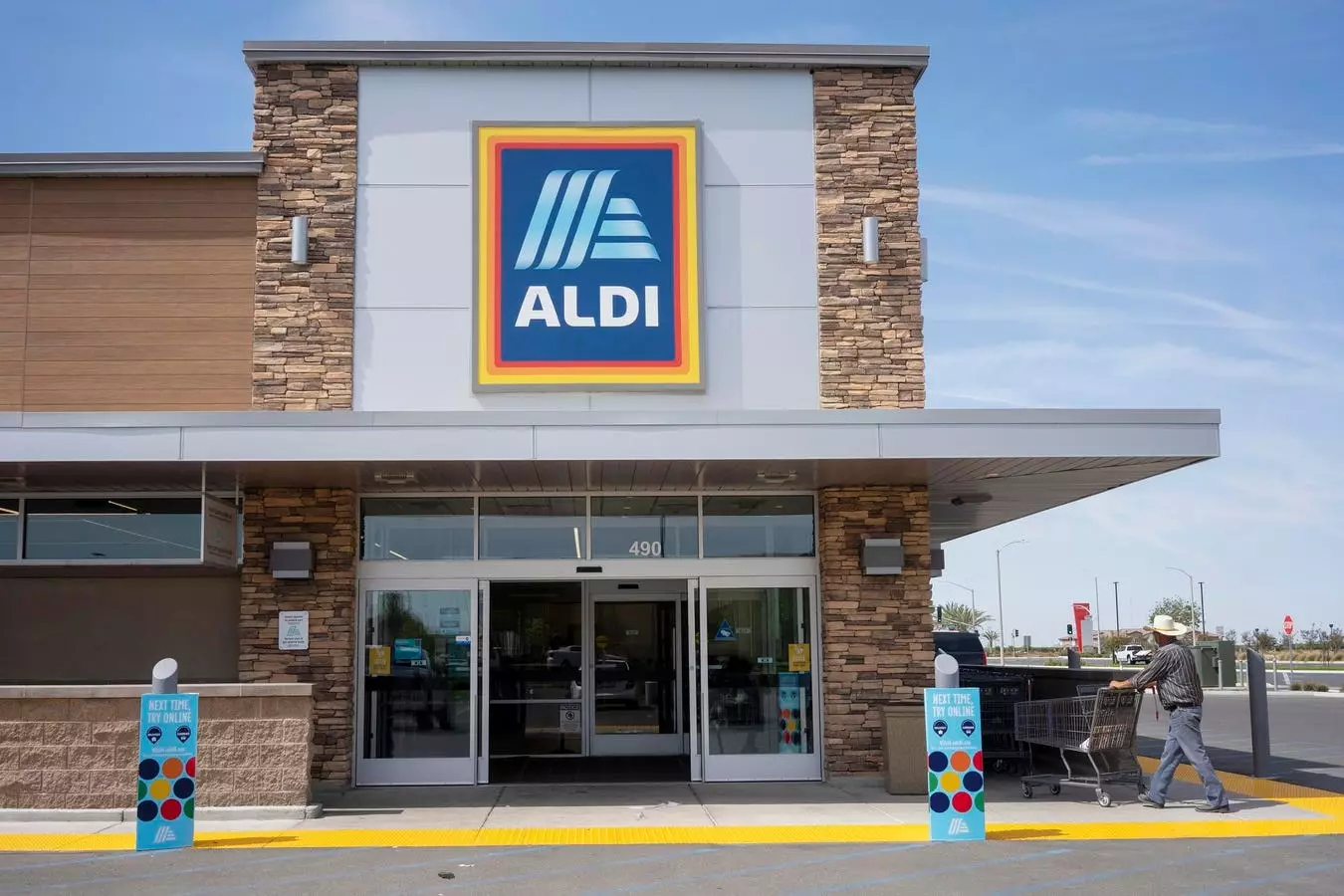In an era where inflation relentlessly impacts household budgets, shoppers are often caught in the uncomfortable balancing act between quality and cost. The grocery landscape is ever-evolving, and one supermarket chain is making waves with its commitment to affordability without sacrificing quality: ALDI. The recent release of ALDI’s inaugural Price Leadership Report has turned heads by revealing that it consistently offers the lowest prices across five major U.S. metropolitan areas, a testament to its growing influence in the competitive grocery sector.
Conducted by an independent research firm, the Price Leadership Report analyzed pricing across various retailers, including heavyweights like Walmart, Kroger, and Amazon Fresh. This report focused on an essential basket of 70 frequently purchased items, capturing the spending habits of consumers in cities such as New York, Los Angeles, Chicago, Miami, and Houston. The findings were enlightening: families spending in the market for brand-name products typically shell out an estimated $10,610 annually, but those opting for ALDI’s store brands only pay around $6,759. This difference translates to significant savings of 36%, illustrating that budget-conscious shoppers have real alternatives for making their dollars last.
Moreover, the study noted that even when families choose store brands from competing grocery chains, they still save only about 22%. In an astounding realization, U.S. ALDI customers collectively saved approximately $8.3 billion in 2023 shopping primarily for ALDI’s store brands as compared to competitors. It’s no wonder that ALDI’s CEO, Jason Hart, confidently declares that the chain has become a leader in value within the U.S. grocery market.
What sets ALDI apart from the pack is not just its aggressive pricing strategy; it’s also the assurance of quality. An extensive survey revealed that approximately 77% of ALDI’s shoppers believe the store has the freshest produce in the market, although only 76% considered their store brands comparable to pricier alternatives. This perception of quality is intriguing, as anecdotal experiences—like visiting ALDI’s test kitchens—suggest that many ALDI items can hold their own against more recognized brands.
Hart posits that nearly five decades of operational experience in the U.S. has allowed ALDI to form a robust supplier network that ensures diverse, high-quality offerings. From local vegetables to imported gourmet cheeses, ALDI has built a reputation for providing a variety of quality goods while maintaining low prices. This model not only appeals to the cost-sensitive consumer but also caters to the growing trend among shoppers who prioritize quality and sustainability.
Shopping at ALDI is often characterized by a unique, no-frills atmosphere. This intentional design choice strips away the excesses commonly found in larger supermarkets, allowing for a more efficient shopping experience. Consumers have noted that the average shopping trip typically takes just 30 minutes, with 77% of shoppers appreciating this time-saving aspect. ALDI’s streamlined layout minimizes distractions and clutter, so customers can quickly locate what they need and move through checkout seamlessly.
Additionally, research indicates that many consumers find their low everyday prices more appealing than fleeting sales or digital coupons, solidifying ALDI’s appeal as a budget-friendly alternative. Ultimately, the simplicity of ALDI’s in-store setup, combined with its commitment to lower prices, enhances customer satisfaction, making shopping not just a chore but an enjoyable experience.
In today’s marketplace, ethical considerations are more significant than ever. ALDI has recognized this shift in consumer priorities and has made meaningful efforts to adopt sustainable practices. By integrating environmental sustainability efforts into their sourcing strategies—such as supposedly using sustainably caught seafood and organic produce—ALDI demonstrates its commitment to a more conscientious retail model.
This social responsibility extends to the corporate level, where ALDI engages in practices that advocate for customer health by emphasizing ingredient transparency and eliminating certain harmful additives from their store brands. Furthermore, their corporate policies align with UN guidelines on social standards, showcasing a multifaceted commitment to positive change.
ALDI’s entrance into new markets often prompts a dramatic shift in local grocery pricing. The retailer’s competitive pricing strategy forces neighboring supermarkets to reconsider their pricing structures, thus benefiting all consumers within the community. This ripple effect echoes ALDI’s promise of affordability—when one chain lowers its prices, it benefits customers across the board.
As ALDI expands its footprint, such as its recent acquisition of Winn-Dixie, the continued influx of shoppers driven by the allure of both quality and affordability indicates that ALDI’s unique retail model is not just a passing trend but a steadfast movement in grocery shopping.
ALDI stands as a beacon of hope for consumers striving to navigate the challenges of modern grocery shopping. By maintaining a steadfast commitment to quality, affordability, and sustainability, the supermarket chain positions itself as a key player in the retail arena and an enduring ally to cost-conscious shoppers.


Leave a Reply